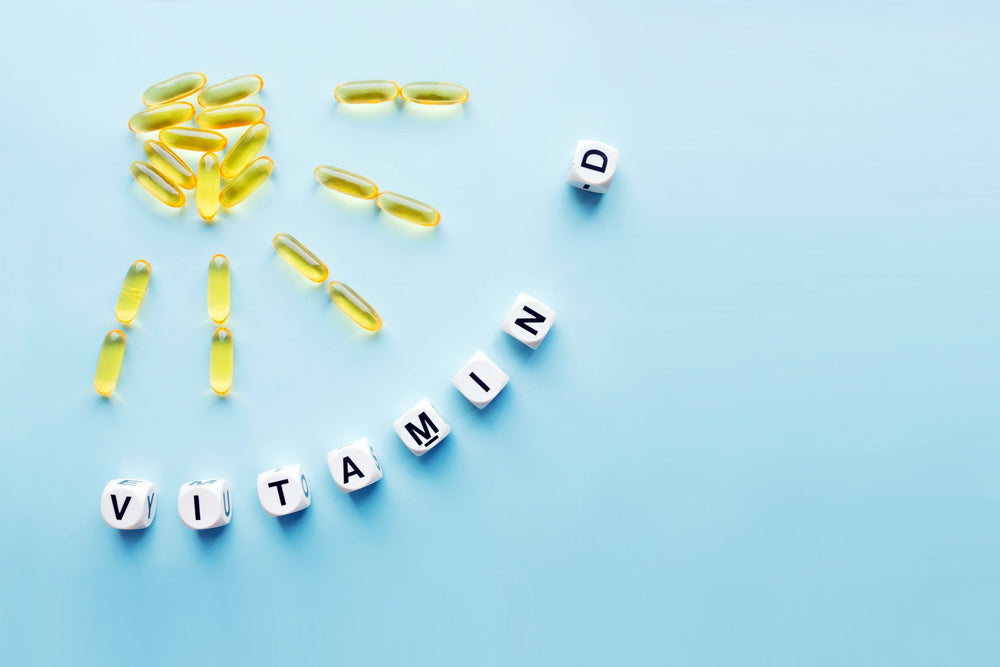Pregnancy provides an excellent opportunity to have a healthy pregnancy, optimise your general health and well-being and, of course, give your growing baby the right start in life. Vitamin D is one of the essential micronutrient vitamins for preconception, pregnancy and post-birth.
What is vitamin D?
Vitamin D is part of the fat-soluble group of vitamins. Within the human body it helps us to absorb calcium, magnesium and phosphorus. It is critical for a baby’s development, especially bone health and teeth formation, the immune system to fight infection, and muscle cell mass production and maintenance. Recent clinical studies have pointed to vitamin D’s important role in ensuring a healthy heart, lungs and brain and reducing the risk of low mood, depression and even heart disease.
Why is Vitamin D important in pregnancy?
While growing the human inside you, your body is responsible for providing all the required nutrients for you and your baby. These nutrients make the building blocks of an entirely new little person. By ensuring you have enough vitamin D during pregnancy and are not deficient, you are laying the groundwork for your baby to have healthier bones, teeth, muscle, brain and cardiovascular systems.
It is essential: we know from years of scientific research that we cannot have healthy babies without vitamin D. A lack of vitamin D in pregnancy can have long-term repercussions on a baby’s health, leading to issues with bone formation (a severe deficiency can cause a disease called rickets), dental issues and cardiovascular problems. A lack of vitamin D before, during or after pregnancy could negatively impact women's health.
How much vitamin D should I take during pregnancy?
The recommended daily allowance (RDA) is 10mcg (micrograms), or 4000IU (international units).
How do I get enough vitamin D during pregnancy?

Vitamin D is the sunshine vitamin. That is because, amazingly, it is produced by the sun hitting our skin and converting a chemical into a usable form of the vitamin (calciferol). The issue with living in the northern hemisphere is that we do not get year-round sun, and we have long and dark winters, meaning that many of us do not get enough vitamin D from sunlight – even outside the additional pregnancy needs.
Where there is sun exposure, however, we also need to be mindful of the sun’s UVA and UVB harmful rays, so we cover ourselves and exposed skin in clothes and sunscreen to protect us (and rightfully so). This results in insufficient exposed skin having the sun/skin reaction and producing enough of this amazing vitamin.
Although some foods contain different vitamin D levels, getting the amount you need from food is difficult. Vitamin D can be found in animal sources such as oily fish – for example, salmon, mackerel and sardines – egg yolk and chicken breast, and some fortified foods, such as milk (dairy and plant-based) and breakfast cereals, contain it.
What are the other ways to increase vitamin D throughout pregnancy?
The best way to ensure your vitamin D needs are met is to take a vitamin D tablet during pregnancy. This can be taken on its own or, better still, as part of a good quality multivitamin supplement.
Alongside folate/folic acid, vitamin D supplementation is recommended for all pregnant women in the UK and Ireland throughout their pregnancy and during their postnatal period, as well as for the duration of their breastfeeding journey.
Vitamin D supplementation is usually advised for babies (usually in drop form), but the recommendations vary depending on how your baby is feeding.
For breastfed babies, a daily vitamin D dose of 8.5-10 mcg is recommended from birth to 1 year of age.
Formula-fed babies should only have daily vitamin D supplementation if their total formula intake is less than 500ml (approx. a pint) per day. If they have more than this, supplementation is advised against because formula milk is already fortified with vitamin D and other nutrients.

You can have too much of a good thing, so taking more vitamin D than the recommended daily amount (RDA) is not recommended as this can have side effects and could be harmful. If you have any concerns, always chat to your midwife, GP or pharmacist, who can advise and help you.
Can vitamin D cause birth defects?
There is no evidence to suggest that vitamin D can cause birth defects. Instead, vitamin D deficiency has been conclusively linked to adverse health outcomes for the foetus and baby and the mother. While you can take too much vitamin D, if you take a good quality supplement in the recommended dose, alongside eating a healthy, well-balanced diet, there won’t be an issue. Again, chat with your healthcare provider for medical advice if you have any concerns.
Conclusion
At My Expert Midwife, we have developed a perfectly balanced nutritional supplement with the right amount of vitamin D and a host of other vital pregnancy vitamins and minerals. You can lay the groundwork by taking a good supplement preconception or as soon as you discover you’re pregnant. Find out more about our supplements here and the additional nutritional needs in pregnancy.


















